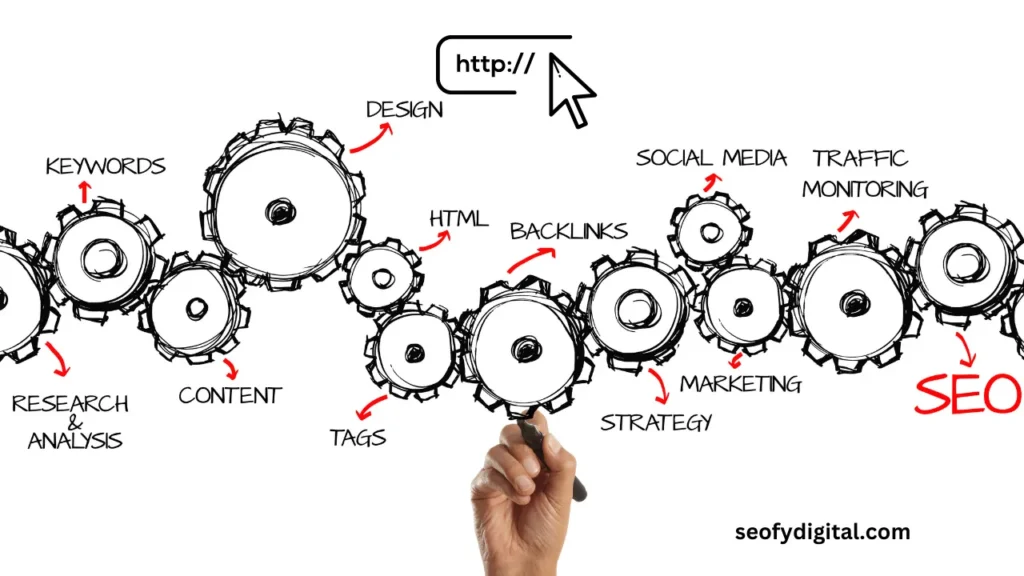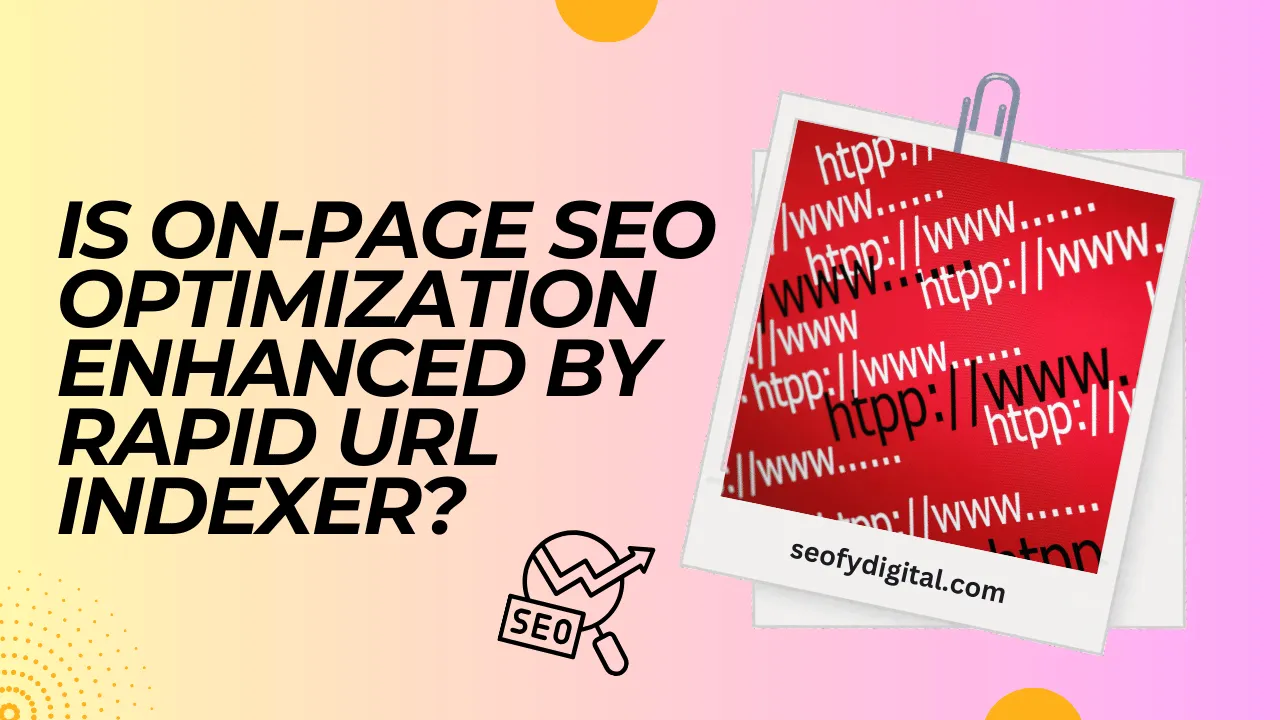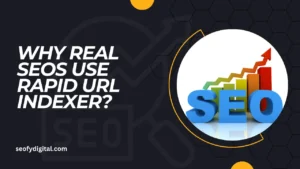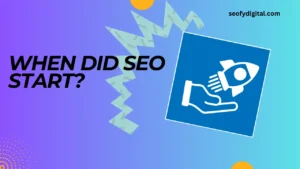In today’s digital landscape, visibility on search engines is crucial for any website aiming to succeed. With search engines processing billions of searches daily, appearing on the first page has become increasingly competitive and essential for online businesses, content creators, and marketers.
However, a persistent challenge faced by many is the slow indexing of web pages, a factor that can significantly hinder website visibility and organic reach. Imagine dedicating hours to optimizing on-page SEO elements—researching keywords, crafting engaging content, and setting up meta tags—only for your page to take days or even weeks to be visible on search engines.
This delay not only affects traffic but also leads to missed opportunities in terms of audience engagement and revenue. Here’s where rapid URL indexers step in, offering a promising solution to speed up this process and maximize your SEO efforts.
This blog explores the impact of rapid URL indexers on on-page SEO optimization. From enhancing search engine rankings to ensuring content reaches users faster, we’ll uncover how these tools could be game-changers for websites looking to strengthen their digital footprint.
Read on to discover how integrating rapid URL indexers into your SEO strategy can give you a competitive edge in today’s fast-paced digital world.

Contents
Understanding On-Page SEO
On-page SEO is the foundation of effective digital marketing, focusing on optimizing individual pages for search engine visibility and user experience.
- Keyword Research and Optimization
Selecting and placing the right keywords is essential. Conduct thorough research to find high-ranking keywords, ensuring they’re relevant and seamlessly incorporated into content. - Meta Tags (Title Tags, Meta Descriptions)
Title tags and meta descriptions help search engines understand page content. Ensure titles are keyword-rich and descriptions are compelling, as this affects both ranking and click-through rate (CTR). - Header Tags (H1, H2, H3, etc.)
Using header tags organizes content, making it readable and helping search engines identify key points. Use an H1 tag for the main title, followed by H2 and H3 tags for sections and subsections. - URL Structure
A clean and descriptive URL improves visibility and user experience. Avoid unnecessary characters or words; use short, keyword-rich URLs to help search engines and users understand page content. - Content Quality and Relevance
Search engines prioritize high-quality content. Ensure your content is unique, relevant, and valuable to your target audience, as this promotes user engagement and retention.
The Role of URL Indexers
Rapid URL indexers play a significant role in enhancing SEO by expediting the indexing process. Here’s how they work and why they matter:
- How URL Indexers Work
Indexers work by crawling, analyzing, and ranking web pages. They help search engines discover new content faster by providing direct submission of URLs for crawling and indexing. - Factors Affecting Indexing Speed
Elements like site structure, server response time, and crawl budget affect indexing speed. A rapid indexer helps overcome these obstacles, pushing new or updated content for quick indexing. - The Benefits of Rapid URL Indexers
Rapid indexing leads to immediate visibility on search engines, quicker rankings, and faster audience engagement. Sites that use rapid indexers see an increase in organic traffic due to timely content discovery. - Enhanced User Experience
Quick indexing allows users to access new content faster, improving user engagement and reducing bounce rates. Fast access aligns with user expectations and improves retention. - Improved Search Engine Rankings
Faster indexing results in better rankings. When content is readily available and optimized, it competes more effectively in search results, leading to higher search visibility.

Integrating URL Indexers into On-Page SEO Strategies
Choosing and implementing the right URL indexer can boost SEO strategies significantly.
- Identifying the Right Indexer
Consider factors like pricing, features, and reliability when selecting an indexer. Popular indexers like IndexNow or Instant Link Indexer offer a range of benefits tailored to different needs. - Effective Implementation
Implementing an indexer involves submitting URLs directly and ensuring consistent usage. Regular submission keeps your content fresh and indexed promptly, improving rankings. - Best Practices for Submitting URLs
Use indexers to submit new URLs or updated pages, and prioritize high-value pages. This selective indexing maximizes the efficiency of your strategy. - Monitoring and Analyzing Results
Track the performance of indexed pages to assess the impact on traffic and rankings. Tools like Google Search Console provide insights on crawl rates, impressions, and CTRs. - Optimizing URL Indexers
For maximum benefits, regularly review crawler settings and adjust indexing for optimized results. This maintains a consistent flow of traffic and boosts overall SEO performance.
Advanced On-Page SEO Techniques with URL Indexers
Leverage advanced techniques with URL indexers for a comprehensive SEO strategy.
- Schema Markup for Enhanced Visibility
Schema markup helps search engines understand content and display rich snippets. Rapid URL indexers ensure schema content is discovered faster, improving visibility. - Optimizing for Voice Search
Voice search is on the rise, making voice-optimized content vital. Rapid indexers help make voice-friendly content accessible to search engines quickly. - Boosting Local SEO Efforts
For businesses relying on local SEO, rapid indexing enhances visibility in local listings. Localized content reaches users faster, driving local traffic. - Video Content and URL Indexers
Video content gains popularity, and rapid indexing ensures new videos are discoverable. This benefits sites focused on video marketing. - Enhancing User Experience with Fast Loading Times
Faster indexing translates to quick page load times, essential for user satisfaction. Keeping pages light and mobile-friendly supports this effort, benefiting SEO.
Conclusion
The synergy between on-page SEO optimization and rapid URL indexers can redefine your digital strategy. From faster visibility to improved user engagement, using rapid URL indexers offers advantages that boost organic reach and drive conversions.
As search engine algorithms advance, rapid indexing is a trend that aligns with future-focused SEO strategies. Looking ahead, AI-powered SEO tools and real-time indexing are shaping the next wave of digital visibility.
Staying updated and responsive to these trends will ensure your SEO strategy remains competitive. Don’t miss out on the opportunities rapid URL indexers offer—integrate them into your strategy today and watch your online visibility soar.
Frequently Asked Questions (FAQs)
1. What is a URL indexer?
A URL indexer is a tool that submits URLs to search engines, speeding up the indexing process for faster visibility.
2. How does rapid indexing benefit SEO?
Rapid indexing boosts search engine rankings, user engagement, and organic traffic by making content accessible faster.
3. Are rapid URL indexers safe?
Yes, trusted indexers are safe and widely used in SEO. However, research the indexer to avoid unreliable services.
4. How long does indexing usually take without an indexer?
Without an indexer, it can take several days or even weeks for a page to be indexed, depending on various factors.
5. rapid indexing improve local SEO?
Yes, rapid indexing enhances local listings visibility, making it ideal for businesses targeting local audiences.
6. What are some popular rapid URL indexers?
Popular indexers include IndexNow, Instant Link Indexer, and OneHourIndexing for efficient results.








